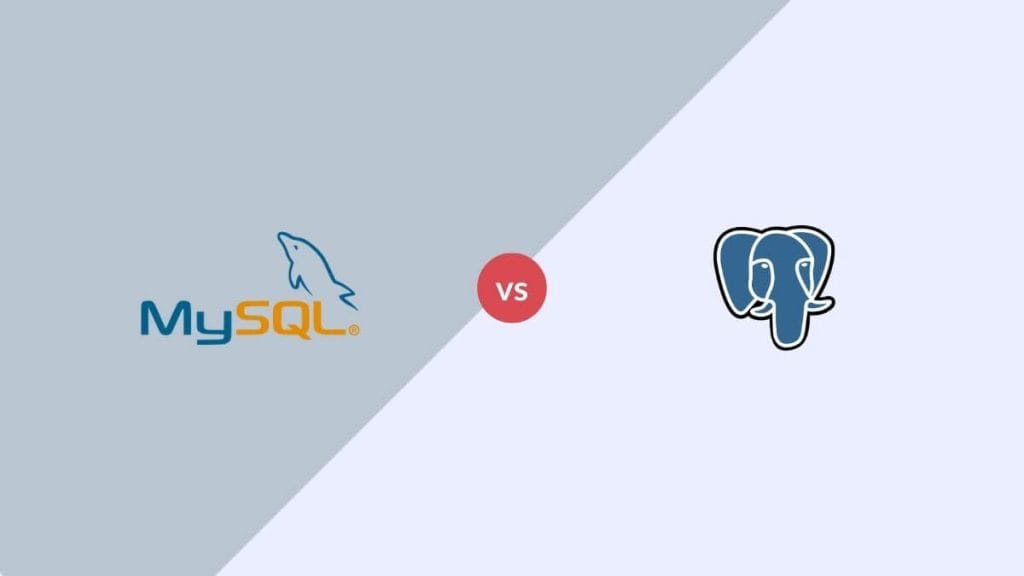MySQL and PostgreSQL are two of the most widely used open-source relational databases today. While they share many similarities, there are significant differences between them that can impact the choice of which database system to use for a particular application. This article aims to compare these two database systems and review their similarities and differences.
MySQL and PostgreSQL support SQL syntax and provide similar features such as data integrity, concurrency control, and security. They both support a wide range of data types, including numeric, string, date, and time data types. They also provide similar data manipulation and querying capabilities, making switching between the two systems easy.
Overview
Oracle Corporation developed MySQL for its speed, ease of use, and suitability for small to medium-sized web projects. Additionally, it offers good performance for read-heavy workloads.
PostgreSQL was developed by the PostgreSQL Global Development Group and is known for its advanced features and extensibility. It is suitable for complex applications and large-scale projects, excelling in handling write-heavy workloads and complex queries.
Architecture
MySQL uses a client-server architecture and it follows a pluggable storage engine architecture, allowing users to choose the storage engine that best suits their needs.
PostgreSQL utilizes a process-based architecture and it supports a single storage engine, but its extensibility allows the implementation of custom data types, operators, and functions.
Data Types and Extensibility
MySQL provides a standard set of data types, including integers, floats, strings, and date/time. It offers limited support for custom data types and indexing methods. MySQL extensions and plugins are available but they are less extensive compared to PostgreSQL.
PostgreSQL offers a rich set of built-in data types, including arrays, hstore, and JSON. It allows users to define custom data types, providing greater flexibility in data modeling.
Performance
MySQL is optimized for fast-read operations and is commonly used for read-heavy queries in web applications.
PostgreSQL exhibits strong performance in write-heavy scenarios and complex queries. It allows for fine-tuning and optimization, making it a preferred choice for large-scale applications with diverse data requirements.
Scalability
MySQL scales horizontally through techniques like sharding and vertical scaling is also an option for upgrading hardware resources.
PostgreSQL supports horizontal scaling with features like built-in replication and partitioning. It can also be vertically scaled, but some operations might be more challenging compared to MySQL.
ACID Compliance
MySQL fully supports ACID-compliant (Atomicity, Consistency, Isolation, Durability) and offers good transaction support and reliability.
PostgreSQL strictly adherence to ACID principles, ensuring data integrity and reliability and it offers advanced transaction support and concurrency control mechanisms.
Also read | Best Web Hosting Services of 2024
Concurrency Control
MySQL uses multi-version concurrency control (MVCC) for managing concurrent transactions. It offers good performance in scenarios with a moderate level of concurrent transactions.
PostgreSQL’s MVCC model allows for a high level of concurrency and is suitable for complex transaction requirements.
Ease of Use
MySQL has an easy-to-use interface and can be installed effortlessly. It provides a simple installation and configuration process.
PostgreSQL may have a steeper learning curve, especially for beginners and it offers powerful features but requires more effort in mastering.
Conclusion
Both MySQL and PostgreSQL are powerful open-source relational databases that provide similar features and capabilities. However, the differences between them can significantly impact the choice of which database system to use for a particular application.
Based on the comparison above, PostgreSQL is the superior choice based on its rich features and active community and support, while MySQL is recommended for simple applications or small to medium-sized databases due to its simplicity and speed.
Ultimately, the choice of which database system to use depends on the specific requirements and characteristics of the project

